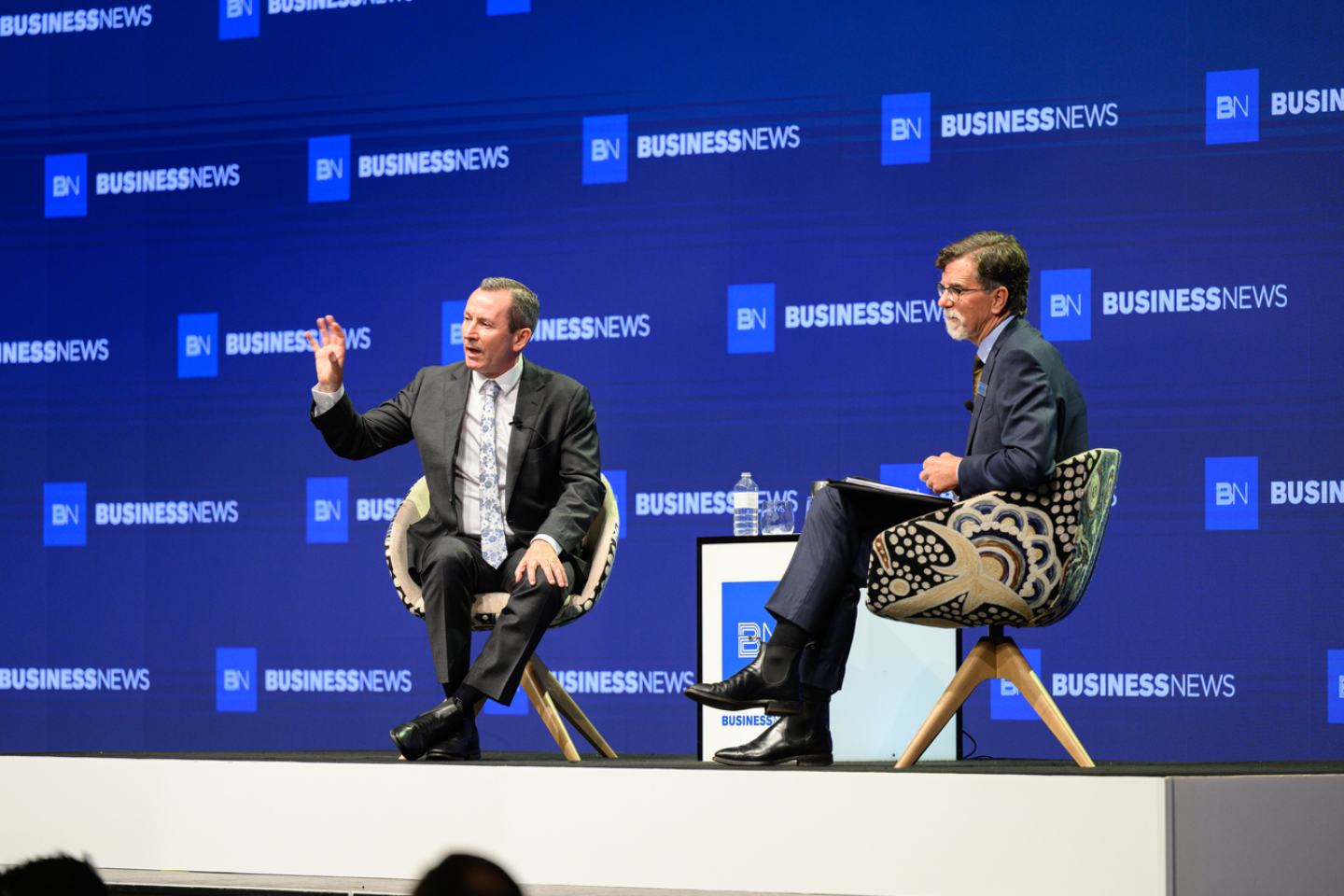Premier Mark McGowan has labelled Western Australia and the east coast as “almost a tale of two countries” while reinforcing the strength of the state’s relationship with China.


Premier Mark McGowan has labelled Western Australia and the east coast as “almost a tale of two countries” while reinforcing the strength of the state’s relationship with China.
The premier delivered a wide-ranging analysis of his third budget as treasurer at the Business News post-budget breakfast this morning.
Highlighting the state’s expected $3.3 billion surplus in 2023-24 against the economic headwinds faced off the back of inflationary pressure and energy prices on the east coast, the premier highlighted WA’s financial strength versus its east coast peers.
“We are in a much stronger position [than the eastern states] when it comes to inflation and utility prices than the eastern states, which is much better for households,” Mr McGowan said.
“In many ways, what this budget shows is that [our economies are] a bit of a tale of two countries.”
WA’s economic growth is forecast at 4.25 per cent in the coming year and tipped to slow to 2.25 per cent the following year as inflationary pressures bite.
But the premier highlighted the state’s strength versus the economies of the east, largely off the back of its established resources trade relationship with China.
Taking a swipe at the anti-China rhetoric prevalent among some on the eastern seaboard, the premier doubled down on his efforts to foster the relationship with the nation’s largest trading partner.
“We are fortunate that the world is after our products; China is there as a ragingly successful economy and has a complementary relationship with WA. We want to keep those relationships strong,” Mr McGowan said.
“I know we’ve got criticism for trying to have a harmonious relationship with China, but I think it’s in the best interests of WA that we do that.”
He also fired a salvo around GST distribution in conversation with Business News senior editor Mark Beyer, playing down the risk of a dilution off the back of economic imbalance and stating those who went after WA’s 70 cents per dollar share of the GST would face “dire consequences”.
“The federal government has said they’re not going to change it, and I believe it,” he said.
“I believe it would be politically deadly for them to do that; obviously it’s a red line for them to cross, and any political party nationally which crosses that will suffer dire consequences in WA.”
Audience questions largely centred on cost imposts for businesses and individuals.
For business, the premier highlighted a modest scale-back of a temporary payroll tax levy affecting the largest employers of the state, which will deliver around $230 million of saving to employers with national payrolls above $100 million per annum.
He reinforced the importance of payroll taxes for budget delivery when quizzed on small and medium business relief.
“We cut payroll tax in last year’s budget, or the year before, and we removed the levy this year, which is a $230 million benefit to businesses around WA,” he said.
“Those are the things we’ve done. But it’s always a balance. We still want to pay off debt, we still want to fund the health system, and we need to have the revenue to do that.”
The premier said the state was constantly reviewing business tax. The payroll tax levy rollback revealed in the budget is expected to mostly affect the resources sector, which is by far the state’s largest economic contributor.
The government has committed $463 million to economic diversification in the 2023-24 budget, including a $35 million top up of the Industrial Land Development Fund, and the establishment of a trade office in Texas.
However, the premier highlighted that the state’s mineral endowment and established resources sector would always place resources front and centre of its economy, and suggested tightness in a workforce currently experiencing record employment made diversification a challenge.
The premier said his government’s $3 billion commitment to the construction of a new battery storage system at Collie and the upgrade of Kwinana’s big battery facility, as well as investment in solar and wind infrastructure to support the South West Interconnected System, was the “big new thing” to come of the budget.
Dual challenge going strong
Asked about his dual status as premier and treasurer, Mr McGowan said the model was working well, and that other states were considering following his lead.
“Being premier and treasurer is something that I think fits together,” he said.
“I think some of the other premiers are thinking about doing it as well, because I think they like the idea of doing it.
"But … our Treasury in this state is very professional and does a terrific job. A lot of the success in the state is due to them.”












